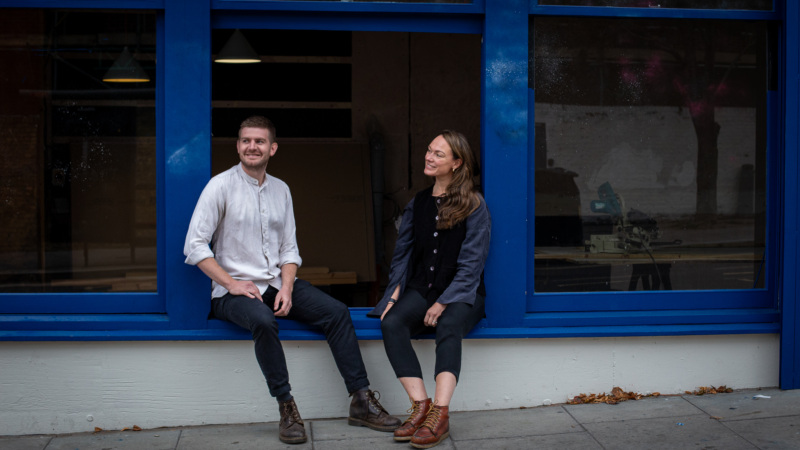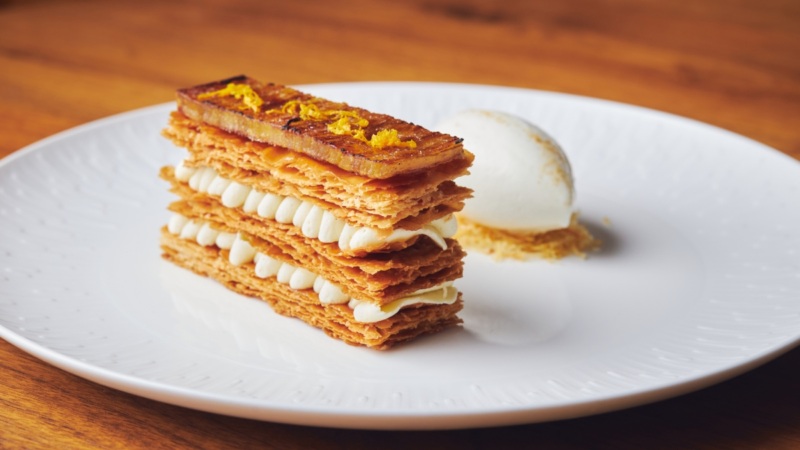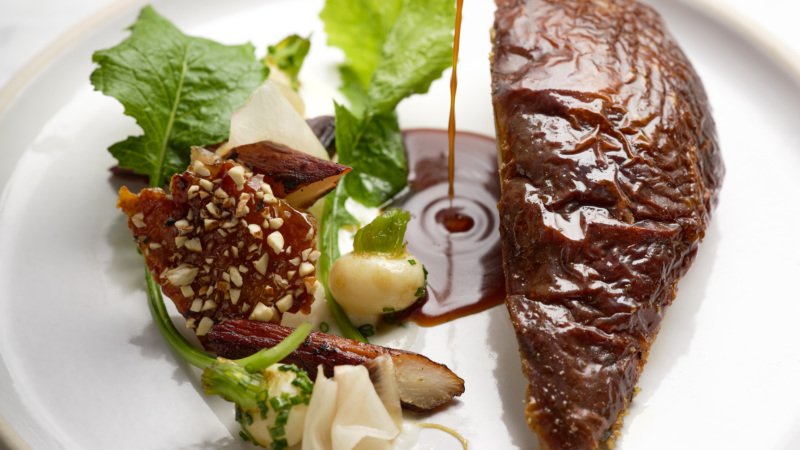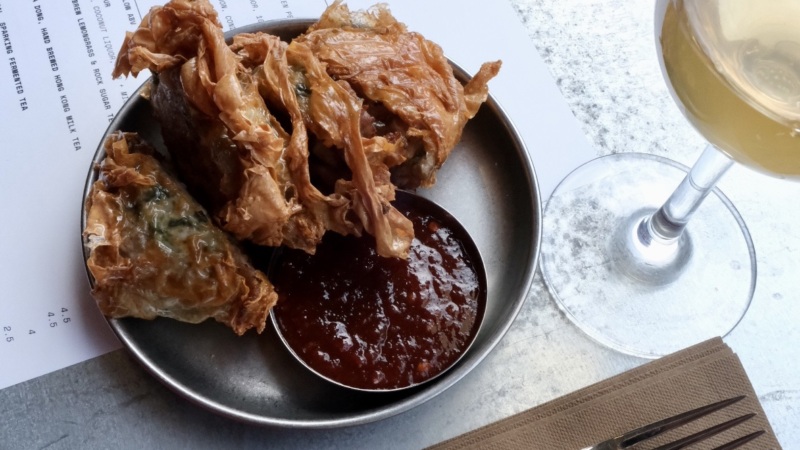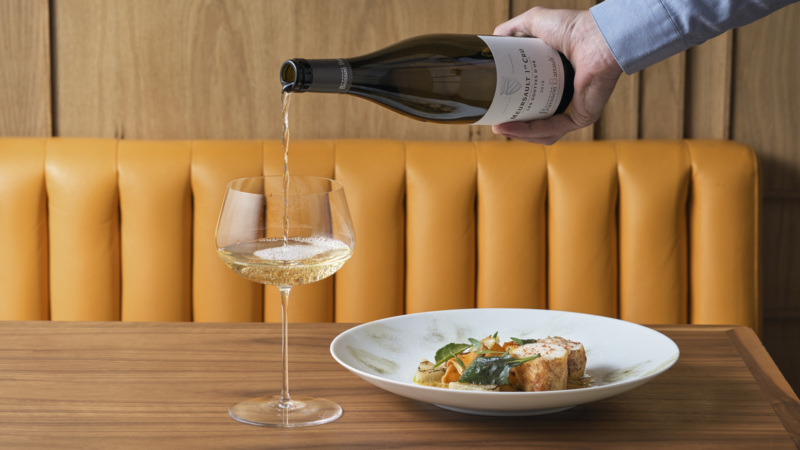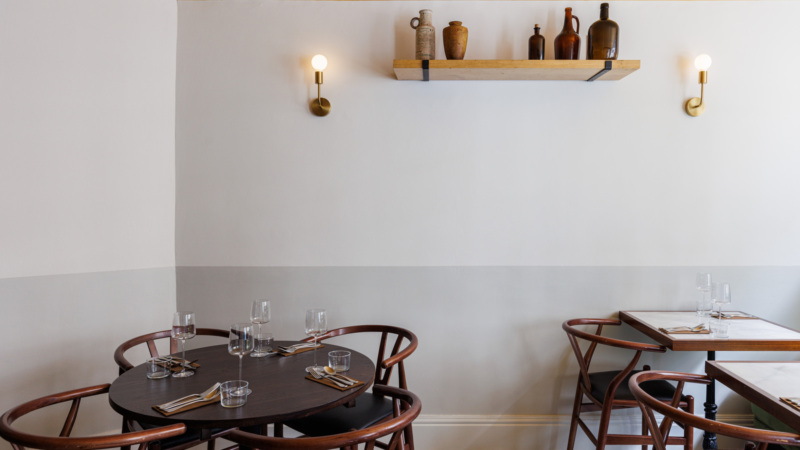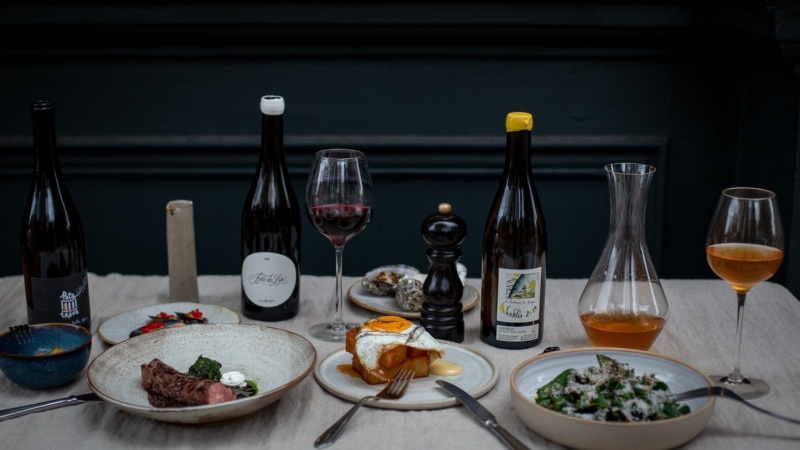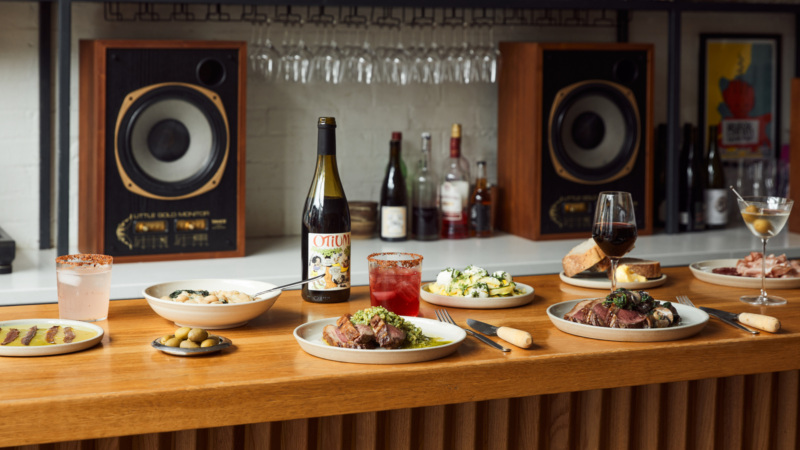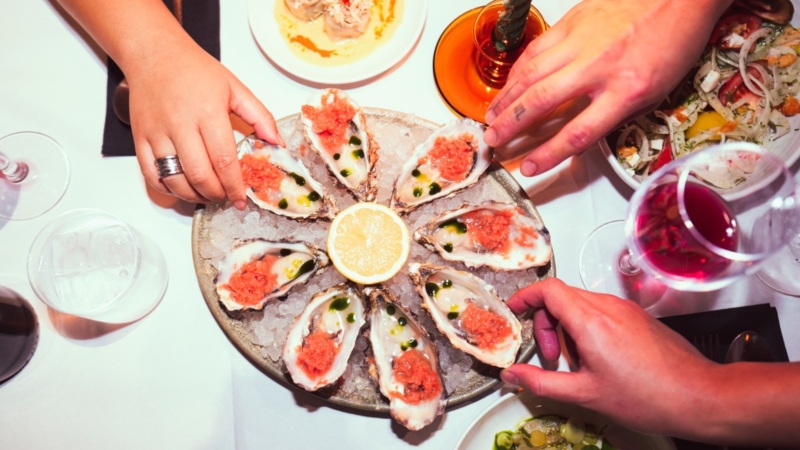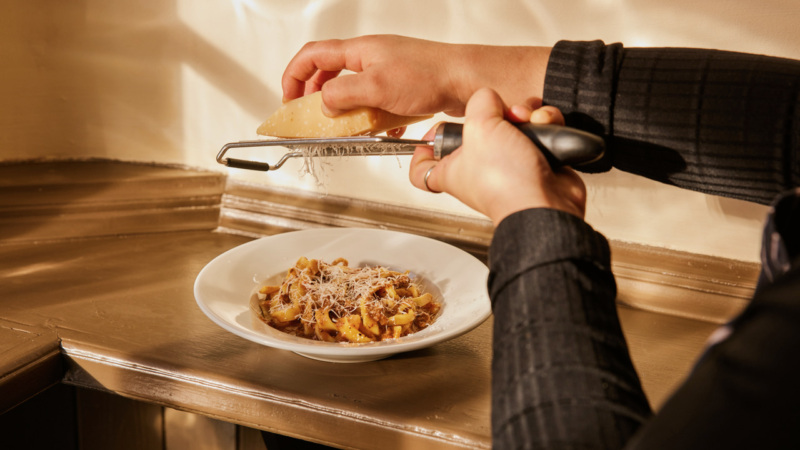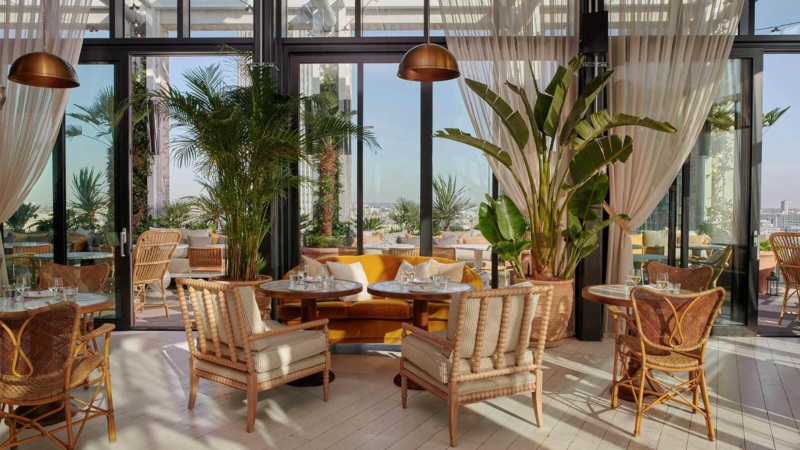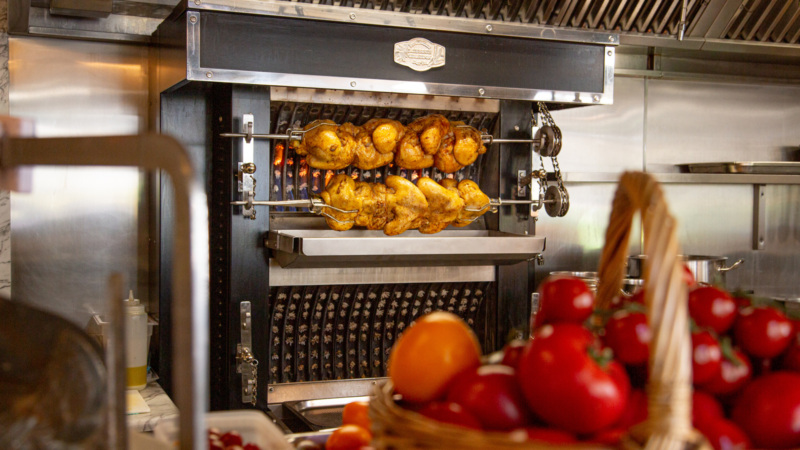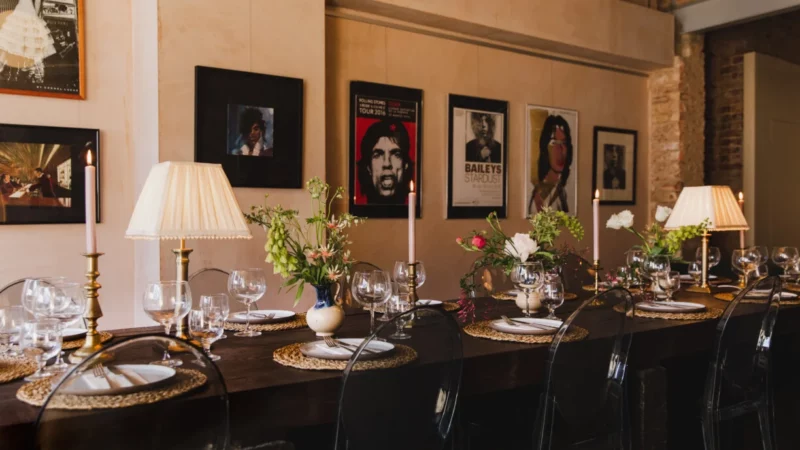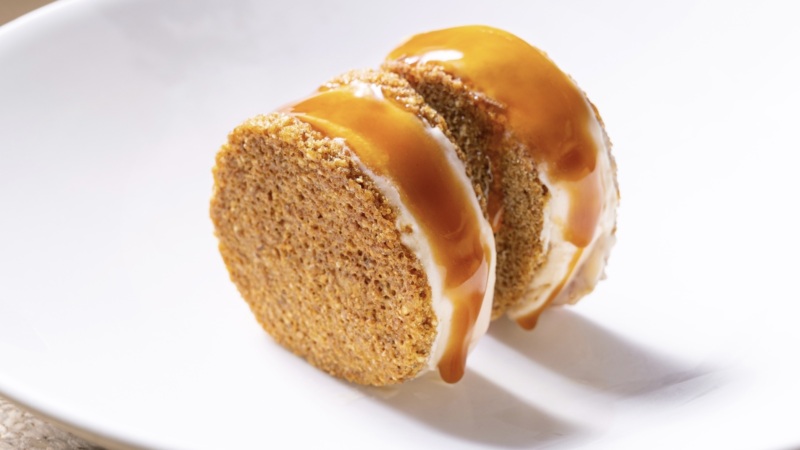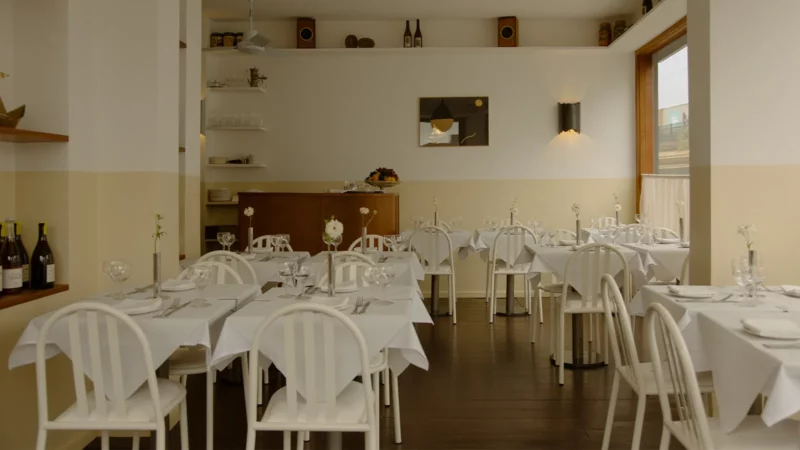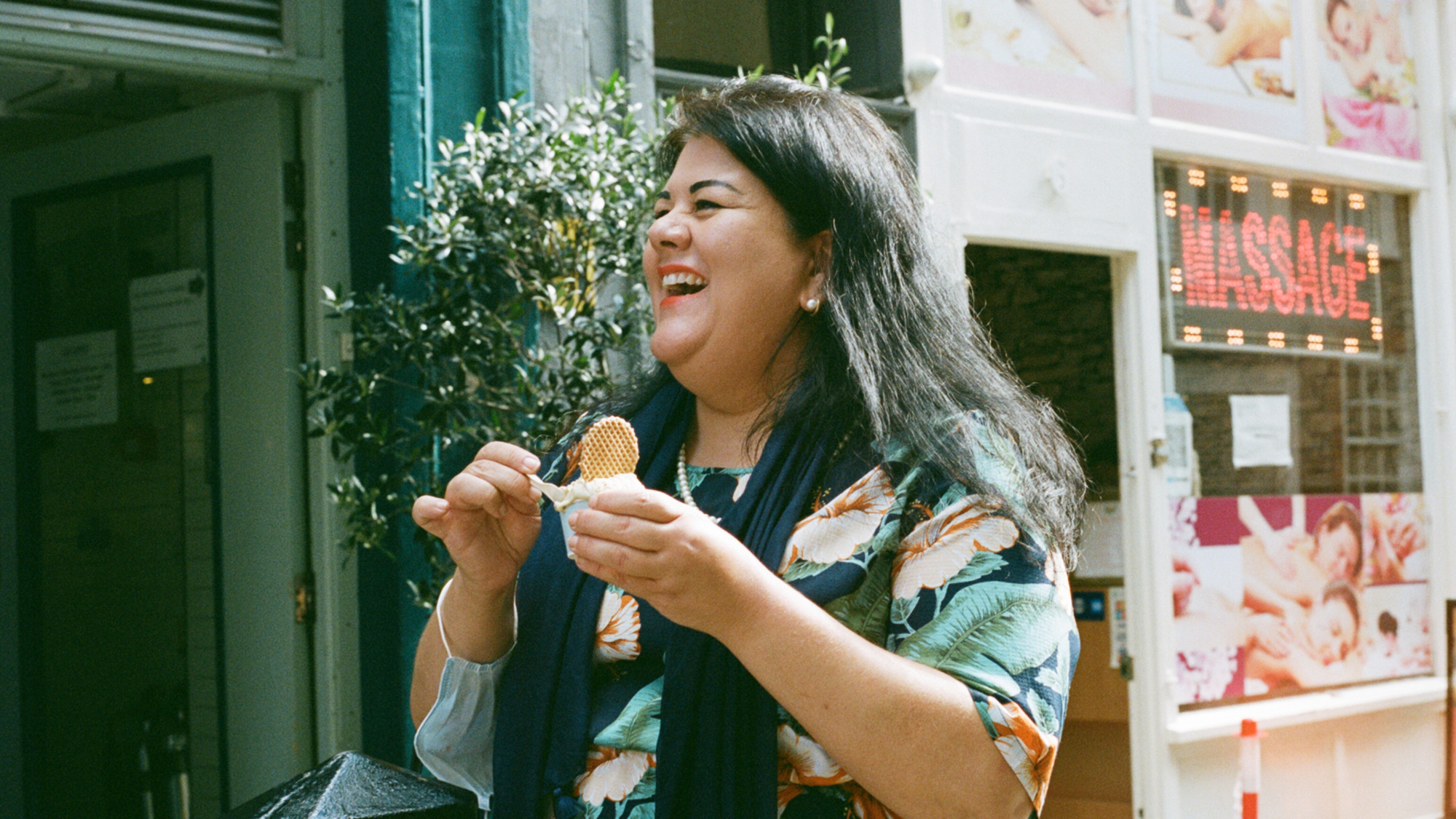
With London in the thick of the Christmas season, the pandemic’s effect on businesses that depend most on evening and night-time trade for their livelihoods is always front of mind – not least for the countless restaurants and bars forced to close during last winter’s lockdown.
As the city makes sense of the Omicron variant and the prospect of returning restrictions looms, it’s a precarious balance that Amy Lamé, London’s Night Czar, understands all too well, as she focuses on understanding the complexities at hand and finding ways for London and its restaurants to flourish.
Tasked with promoting the city’s nightlife venues – including myriad bars, restaurants, and clubs – while simultaneously safeguarding them from closure, Lamé has had her work cut out for her over the course of the pandemic. We joined her a couple of months ago on a tour through Soho, the city’s nightlife epicentre, to help understand: with the businesses most affected by COVID coming under her purview, how can they be rebuilt to thrive?
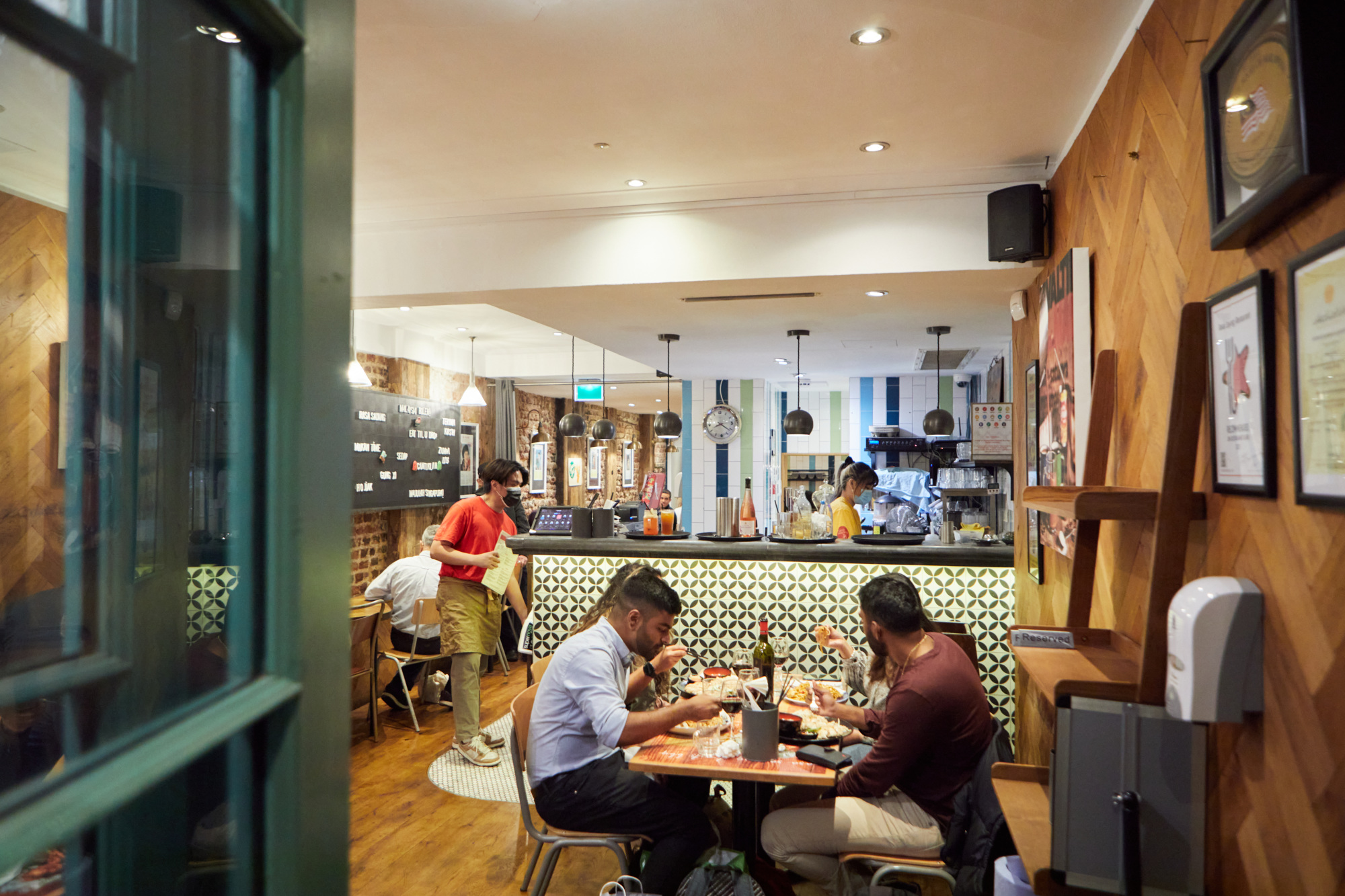
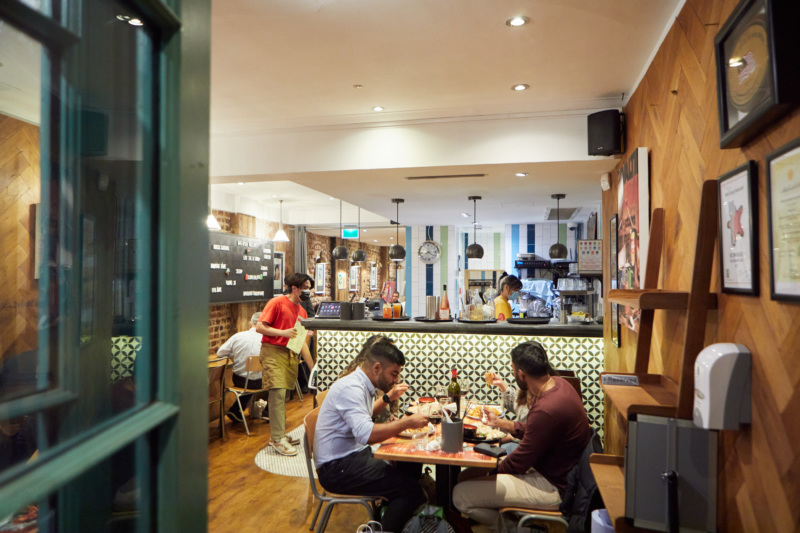
Lamé is perhaps London nightlife’s greatest champion. Her official role as Night Czar is based out of the London Mayor’s office, and it’s one she’s held since 2016 (she’s also the first to hold the position). Although focused on the way the capital functions between the hours of 6pm – 6am, her role is equally about the idea of the city being seen, and understood, as a safe and thriving 24-hour city.
The ability for her to do her job effectively requires understanding London in an all-encompassing manner, so on a stroll through Soho with her and photographer Ejatu Shaw, we stop off at a few of her favourite night-time spots along the way. As we walk, Lamé explains the huge task in front of her, and indeed the city as whole, in rebuilding after the last 21 months.
As a neighbourhood, Soho holds a particular place in Lamé’s heart as a place of memories and one that represents much of what is wonderful about London. When Lamé first moved to the UK (she is originally from New Jersey) in 1992, she worked at the now-closed First Out cafe at the edge of Soho and has many fond memories of closing up at the end of the day and heading to Old Compton Street for nights out. Lamé herself has been part of the hospitality industry since she arrived, co-founding the Olivier Award-winning arts company and club night Duckie, and co-founding RVT Future, a voluntary LGBT+ community group campaigning to preserve the iconic Royal Vauxhall Tavern.
▪️
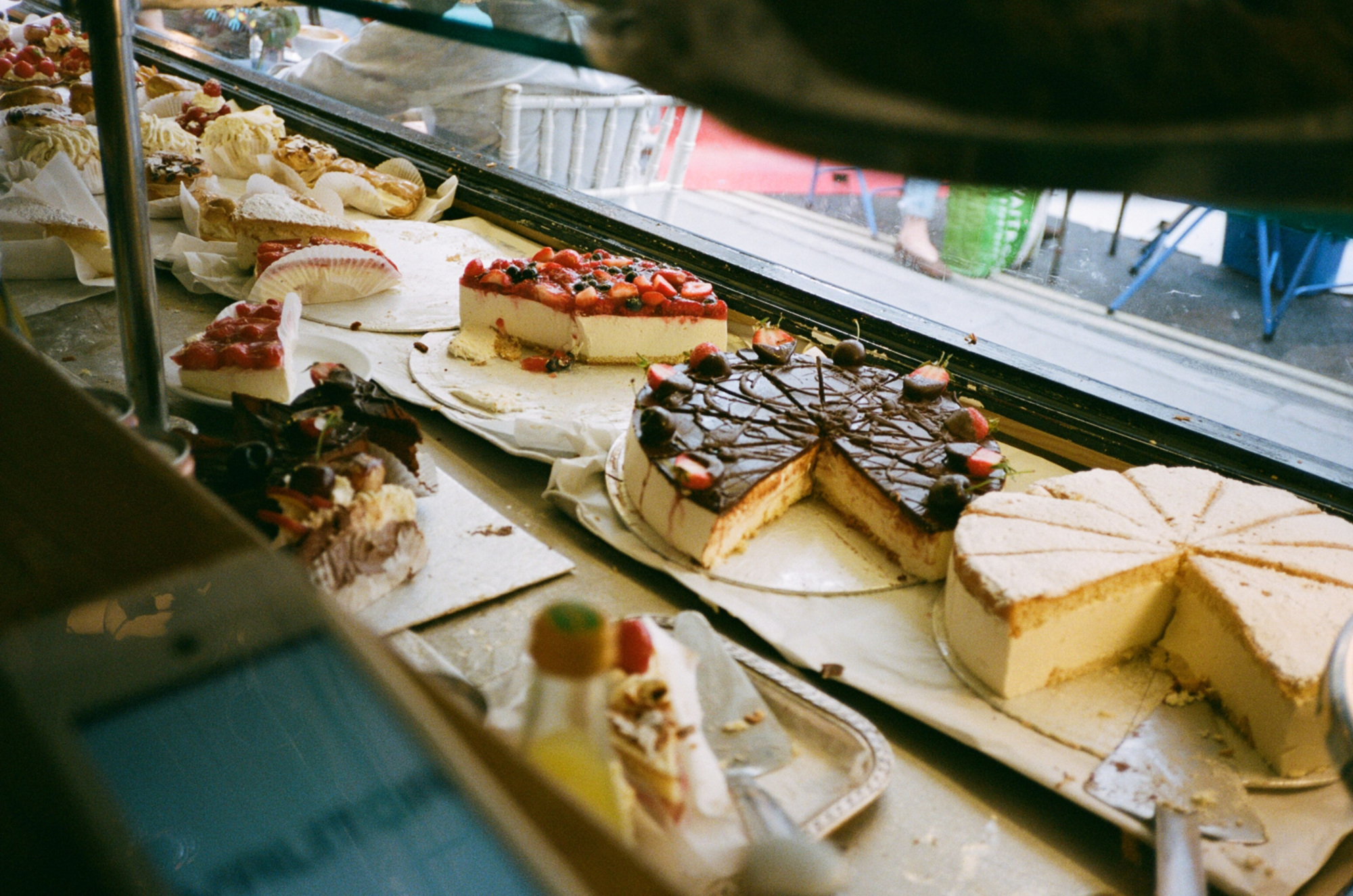
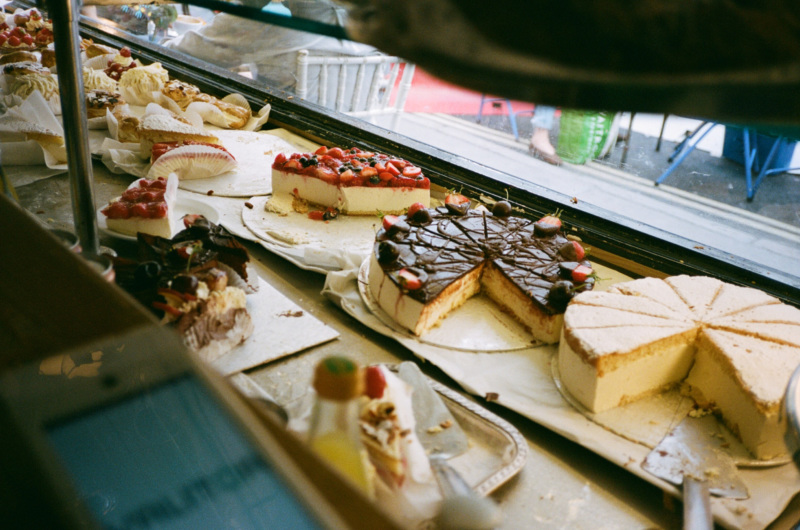
She chooses an iconic Soho institution for our first stop: “Maison Bertaux [on Greek Street] is an old school French café and patisserie run by two formidable and inspiring sisters,” she says. For Lamé, it’s her go-to, and a nook that she’s returned to over the years.
Founded in 1871, it’s also the oldest pâtisserie in London, and was at the heart of the French community at the time. The Wade sisters, Michele and Tania, have run the cafe since 1988 and have had a slew of celebrities through the door for their eclairs and scones.
It’s a perfect spot for Lamé to be reflective of the past year, while giving considering as to what is needed to rebuild London’s night-time economy. “The last 18 months has just been a roller coaster ride for the industry. What the government was telling us – versus what actually was happening on the ground – was often quite different,” she says. “There has been a severe lack of clarity – for businesses, but also for customers. How does this give confidence back?” For Lamé, there was a fundamental misunderstanding of the industry at a governmental level, which caused real issues for those working in the industry.
“Diversity in London is our strength. This is what makes us a world leading city.”
For example, “[pubs thought] it’s Christmas, ‘we’re getting all our stock in’, and a week and a half later, everything had to shut down. Yes, money was lost, but the decision was also disregarding the human power that was required.” Lamé says, speaking on the closure of the industry before Christmas last year. “It seemed like the government didn’t understand that beer is fresh! It has been brewed – you can’t just throw it down the drain.”
She’s keen to express that businesses want to ‘trade out’ of the issues from the pandemic, and that the resilience and adaptability of many industries has been inspiring to watch. Moreover, for her, Soho has also been a great place to see how the surrounding community has come together to create opportunities and support one another.
“There’s always been a healthy rivalry in Soho, but everyone has realised that they are all facing similar challenges. There has been a collective voice, and that’s just got stronger under lockdown.” She points to the fact that hospitality organisations working together were able to make change within government, such as UK Hospitality, The Night-Time Industries Association, British Beer and Pub Association, and The British Institute of Innkeeping. “These are our close stakeholders, and right from the beginning we were meeting regularly, making sure we were very close to the issues as they developed,” she says.
▪️
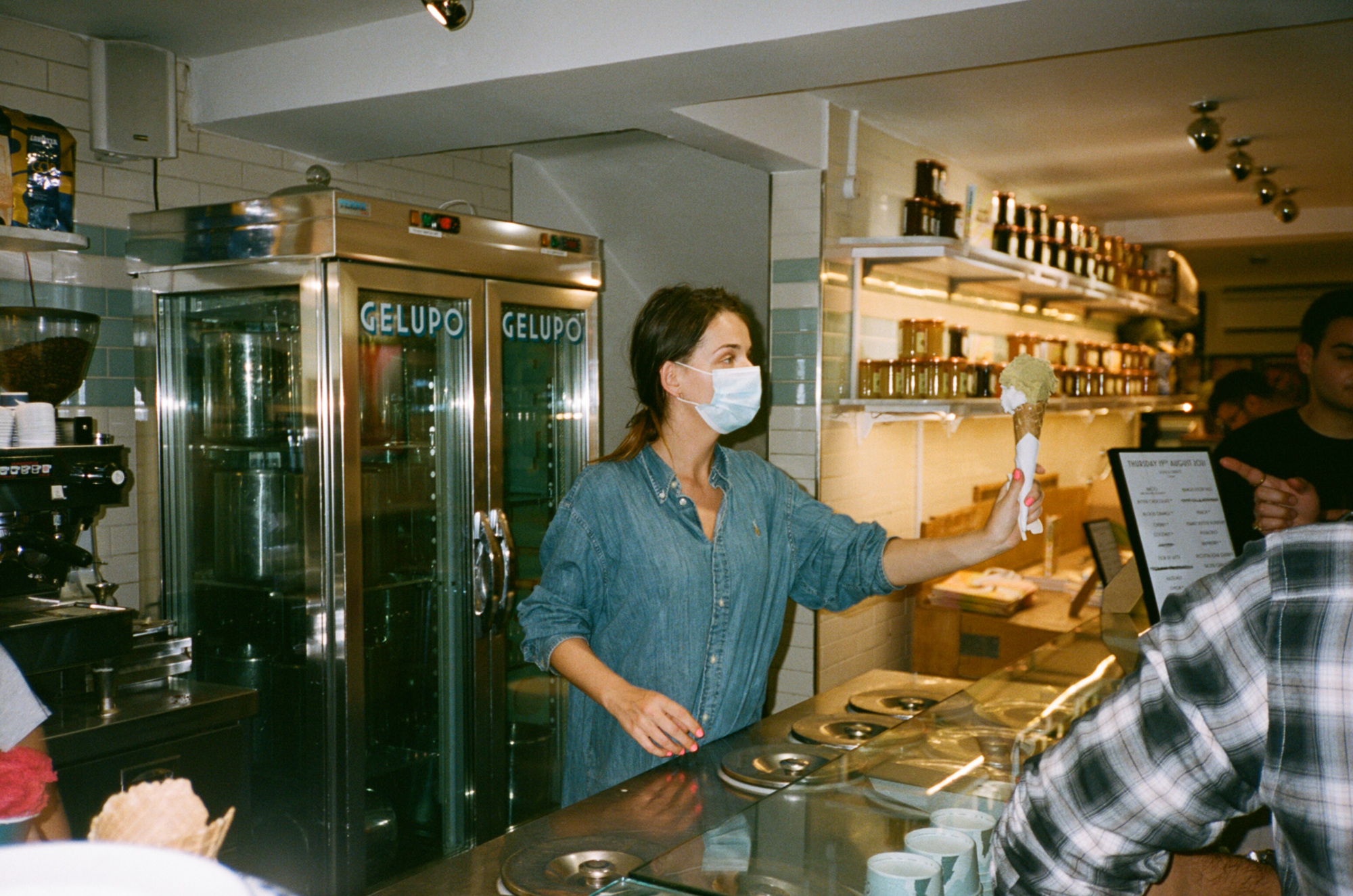
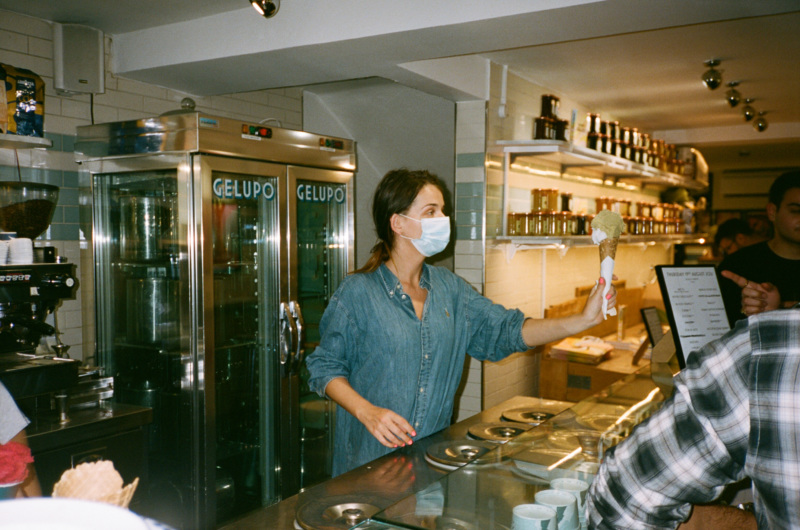
The next stop on our Soho tour is Gelupo – the late-night gelato bar (across the street from its sibling Bocca di Lupo, which Lamé professes to be “the best Italian restaurant in London”).
While it’s a new institution to Soho – established in 2010, still in its infancy for Soho establishments – this ice cream bar has become an important thread in the fabric of the neighbourhood. For Lamé, the story of the diversity in London’s nightlife is a key topic and is about people living in the city – this includes NHS workers to restaurant and bar staff, theatre techs and delivery teams — as well as the myriad of ways to have fun that the city offers. For her, being able to get delicious ice cream late at night is something a diverse city should be able to offer.
“Regardless of whether you’re enjoying yourself, studying, picking up your kids from babysitters, or working – women have always worked at night. You have the right to be, and feel, safe.”
“Just before COVID, we had done the most intensive and comprehensive data study into London at night, the only study that had been into any city in the world. We found we have 1.6 million people who are regularly working at night in London – that’s a third of London’s workers that are working between 6pm and 6am. We also knew that the economy was growing faster at night than it was during the day. Pre-COVID, you were more likely to be admitted to hospital at night for a sports injury than an alcohol-related injury,” Lamé explains.
It is this understanding of London that needs to be considered when looking to the future. “Data is powerful because it tells us the real story of the city at night. It can tackle those myths.”
She mentions that the mayor’s office was poised to launch a raft of new initiatives based on these statistics, to break down myths of the night-time economy, and to strengthen it – in its diversity – before COVID. Lamé feels that this means they are in a good position to rebuild. Notably, this has also included the Culture at Risk Fund, which was to help those cultural business most vulnerable, to survive the pandemic; during the pandemic they helped over 800 venues, including LGBTQ venues, grassroots live music venues, artist studios and independent cinemas.
▪️
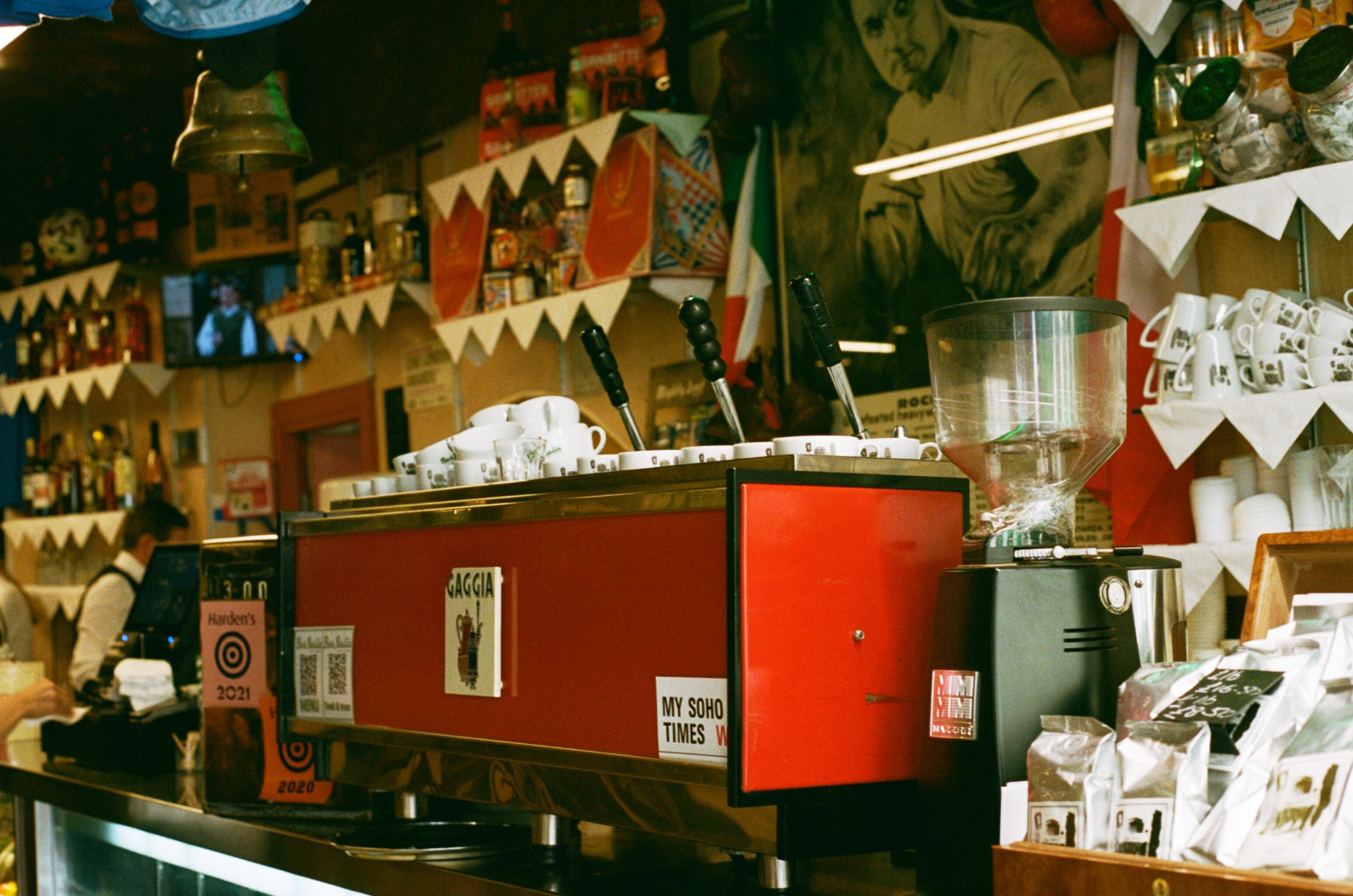
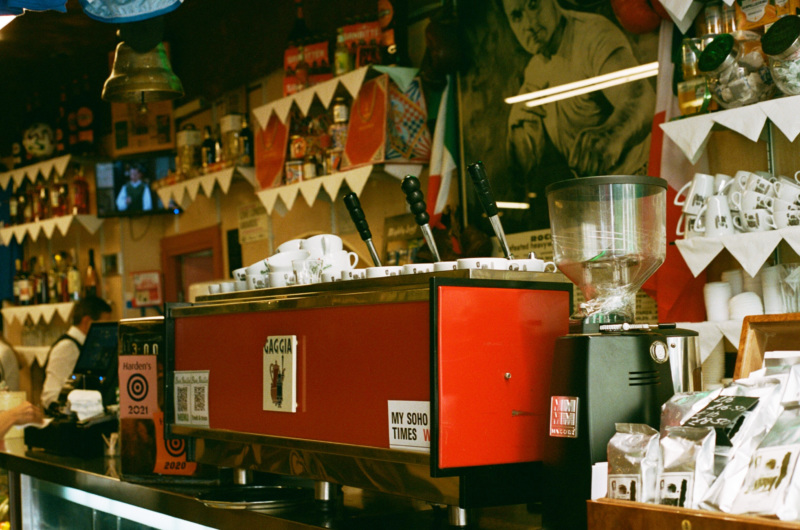
As well as being in contact with the restaurants, bars, and clubs falling within her remit, Lamé also works closely with her colleagues on a raft of issues that can include anything from policing and crime to culture, or from business to the environment and transport. “Because London as a city is so interconnected, we have to take that holistic approach”, she says.
Discussing the all-encompassing nature of her work brings her to the topic of safety. “As a woman who’s always worked at night, my entire life, I’m always thinking – how are people getting to and from work? What are they doing on their break? What are they doing after they’re finished? They’re finished working their restaurant shift, and it’s one in the morning? Where do they go to chill out?” Bar Italia, our third stop, is integral to this conversation. An Italian cafe established in 1949 and one of the neighbourhood’s landmarks, it is open until 5am – meaning that anyone can stop by for a hot drink, at virtually any time. For Lamé, it is about thinking about how Londoners use third spaces like cafes, bars and restaurants, and the needs of different groups and communities throughout the night.
“When I was first appointed Night Czar in 2016, I did some research, asking Londoners ‘what is your number one priority?’ – and what kept coming back was women’s safety at night,” she says. “Regardless of whether you’re enjoying yourself, studying, picking up your kids from babysitters, or working – women have always worked at night. You have the right to be, and feel, safe.”
She mentions the various strategies that the mayor’s office is running (including strategies to address women’s safety in the hospitality industry). Key to this is the Women Night Safety Charter, originally launched in 2018, which she encourages all businesses to sign up to. “It has been really heartening to see the variety of businesses that have signed up. We’ve got a slew of McDonalds – which is super important because that’s where young people go, and sometimes it is the only space open at four in the morning – to the British Association of Lady Arm Wrestlers.”
▪️
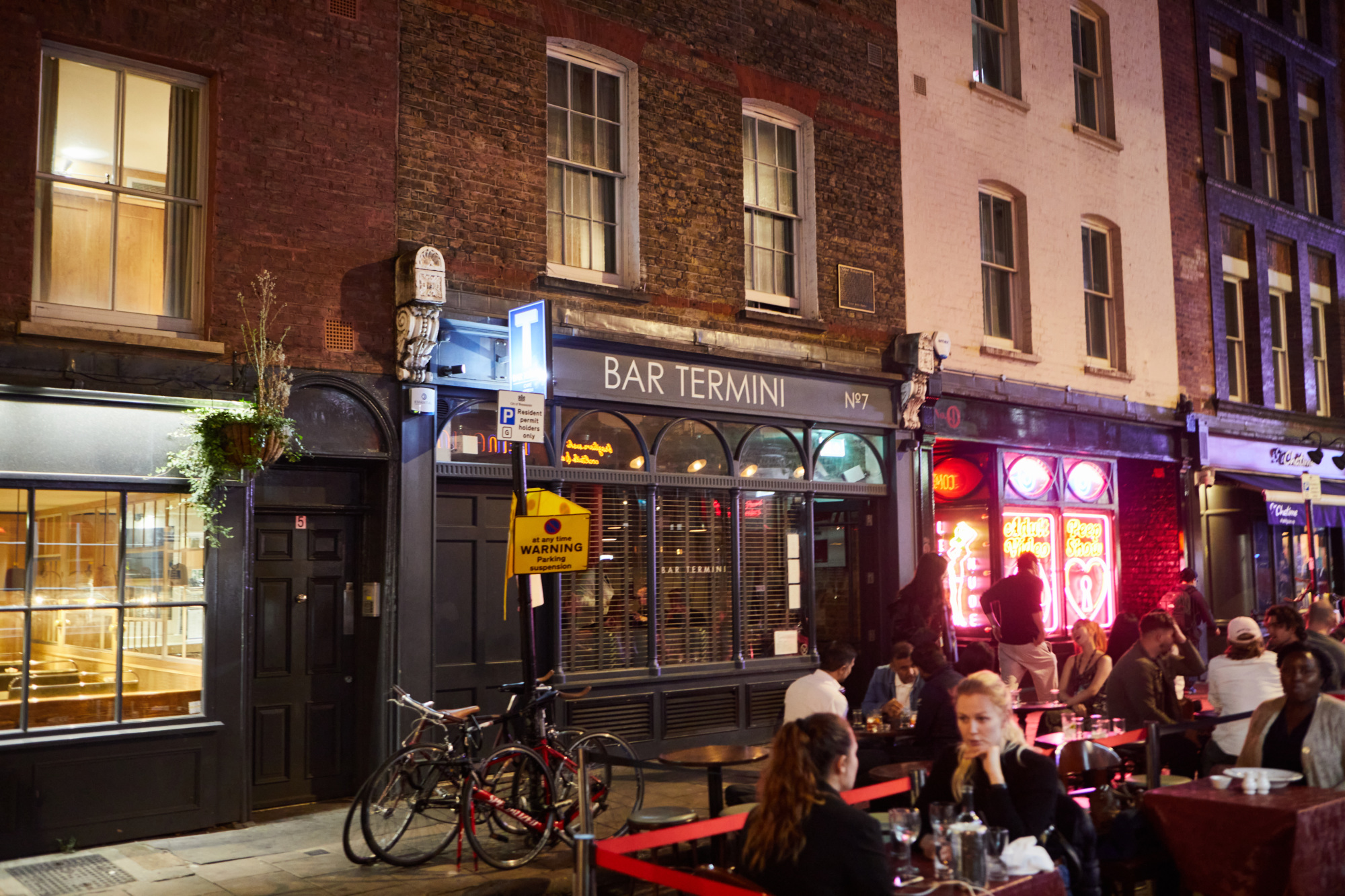
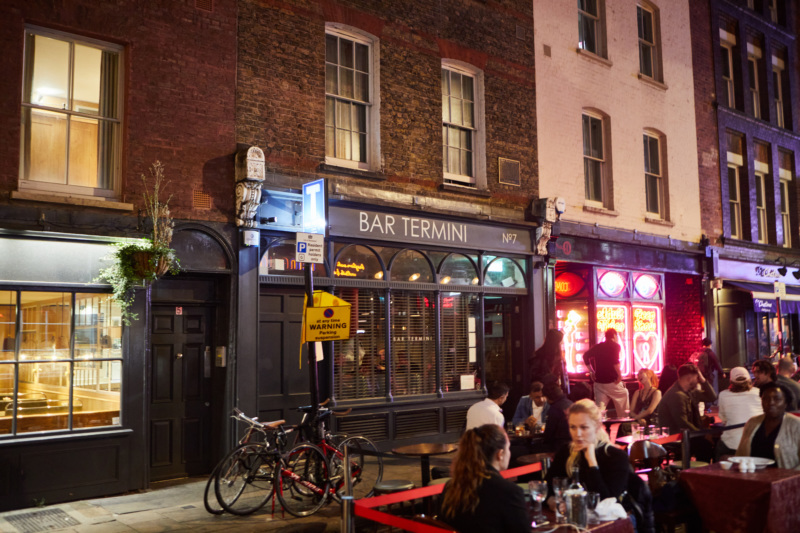
The last two spots Lamé singles out in Soho speak to her travel and memories, and also demonstrate London’s ability to be a city for everyone. C & R Cafe, a Malaysian restaurant in Rupert Court in Chinatown, is one of her favourites, and is a place that reminds her of a trip she took to Malaysia and, in particular, Penang.
The restaurant caters for a diverse clientele, from students to professionals; Lamé explains that part of myth busting is addressing money and accessibility: “We’ve got amazing Michelin star restaurants of course, but also these independently run places that are cheap and cheerful.”
While chatting about C & R Café and her memories of Malaysia – and linking back to our conversation about safety at night – Lamé addresses the racism that became a huge issue for the East and Southeast Asian (ESEA) community during the pandemic: “It is vile and disgusting. It is inexcusable, and there is no place for any hatred against anyone in London”.
A large part of her role requires connecting to a huge range of communities and listening to complex and often sobering stories, and to get many people around a table to find solutions. “Diversity in London is our strength. This is what makes us a world leading city. [This summer] London was voted the best city to be a student. This is not surprising because we are so diverse, and we celebrate this.”
Our tour of Soho ends with a stroll past Bar Termini on Old Compton St, where we watch the staff set up for the evening. “My favourite place for a nostalgic Italian aperitivo!” she smiles. Depending on the time of day, Lamé’s often stops by for an an espresso, Bellini or Negroni – with a plate of olives, of course.
For Lamé, hospitality is such a key part of London, both as peoples’ livelihood and the social engine of the city. “It is important to remember the role this industry is playing in our recovery, our economic recovery, but also our social recovery,” she concludes. “The joy of being able to meet friends in the pub, to go out for a meal, or simply sit down for a cup of tea. To be able to celebrate all those big life events. Hospitality is the backdrop or the facilitator of those.”
Anna Sulan Masing is a London-based writer and academic, and a co-founder of Sourced Journeys and Cheese Magazine. Follow her on Twitter and Instagram. Follow Resy, too.

